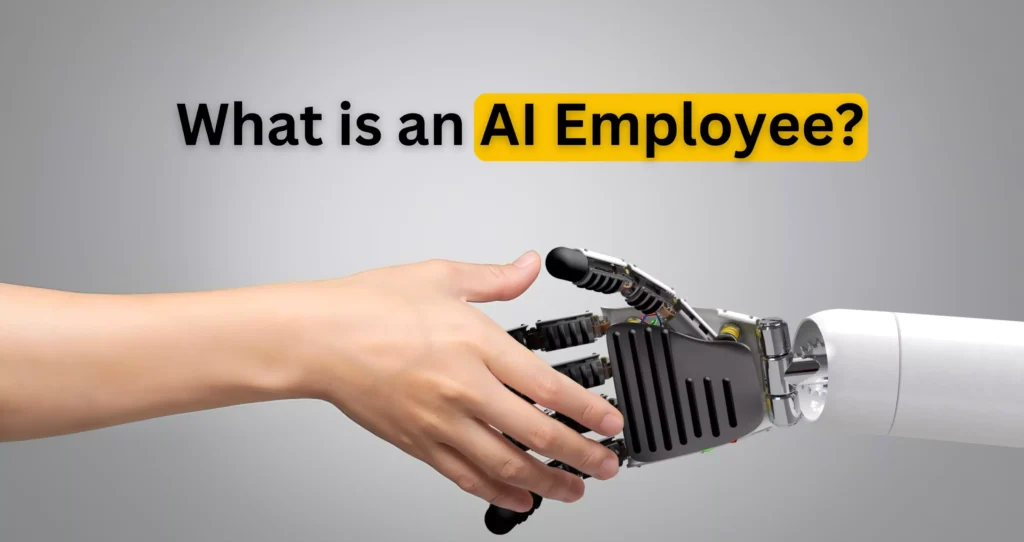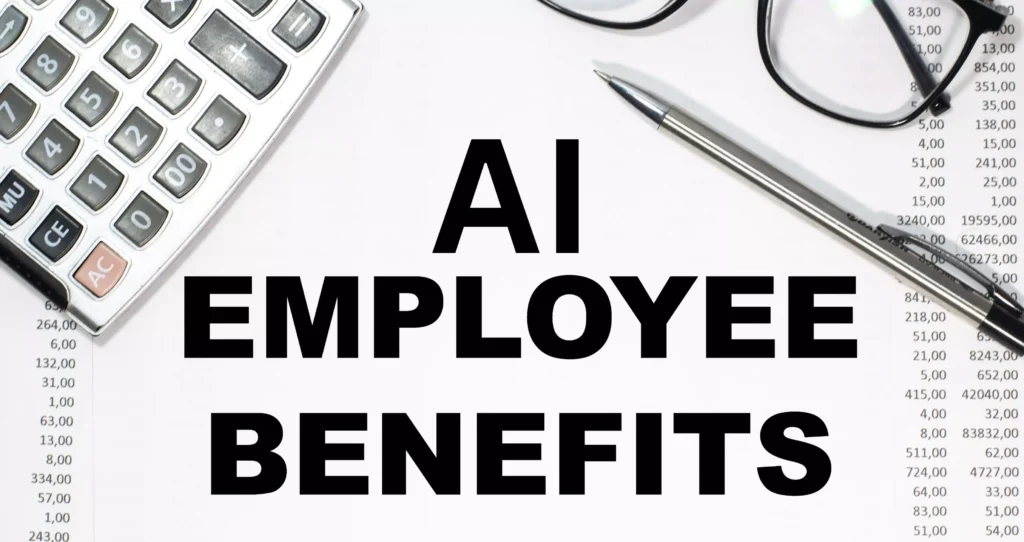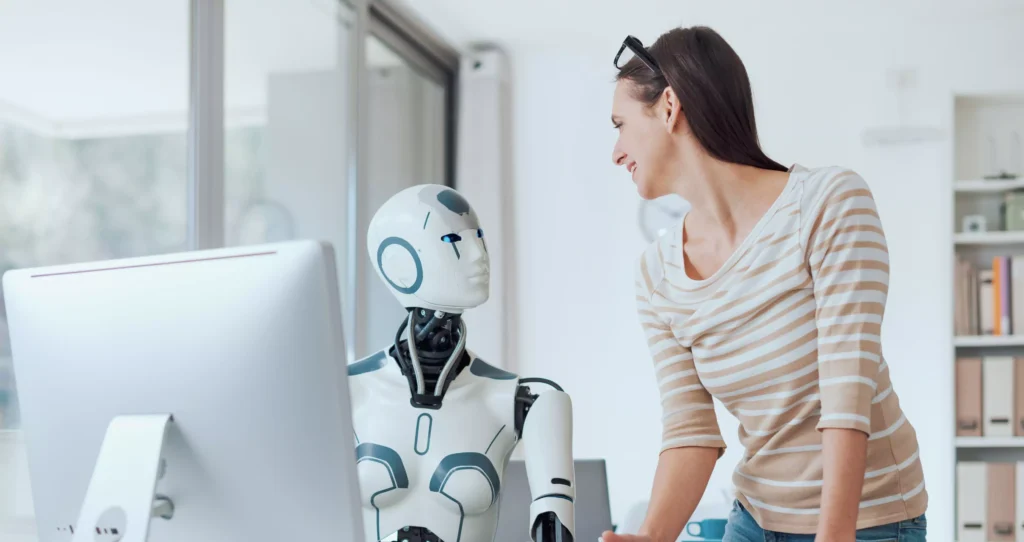In the era of swift technological development, the workplace is transforming at a pace greater than ever. One of the most exciting developments of the past few years is the rise of AI workers—advanced software designed to carry out several tasks previously handled by human hands. It is starting to revolutionize sectors all across the globe and offering challenges as well as possibilities.
Although the use of artificial intelligence in the office provides great benefits, it also raises issues about the future of employment, teamwork, and corporate adjustment. This piece will look at AI workers, their advantages, and how human cooperation is estimated to shape the future of work.
What is an AI Employee?

Fundamentally, an AI worker is a software application or system driven by artificial intelligence capable of executing specific tasks normally carried out by human beings. The tasks may be as simple as customer service tasks, such as responding to questions, or as complicated as processing large data sets or customer relationship management.
AI staff do not supplant human personnel but work alongside them, enhancing productivity, precision, and efficiency. Picture them as a very capable sidekick—plugging away invisibly to execute the repetitive and time-consuming elements that would take human staff members away from the most valuable portions of their contribution.
Though the concept of an AI employee is futuristic-sounding, it is already in practice in most sectors, including healthcare, finance, retail, and customer support. In reality, the technology continues to improve with more advanced AI systems being able to execute a growing list of tasks.
Benefits of AI Employees

AI staff members contribute an array of benefits to companies. Here’s the overview of the most important gains that make their services a priority for companies looking to streamline operations:
Improved Efficiency
One of the best advantages of AI workers is how efficient they are. Since artificial intelligence systems can process great quantities of information in just minutes versus a human, companies can run projects at unprecedented pace. AI performs the work promptly and efficiently with no downtime from customer reviews analysis to order processing to financial document sorting.
Cost Savings
AI workers can also result in significant cost reductions. After being developed and put into place, AI systems tend to be cheaper to keep up than bringing in new human employees. Wages, benefits, or training courses don’t have to occupy your thoughts any longer. Again, by automating repetitive chores, businesses can let human labor to focus on more important activities, thereby increasing resource allocation.
Availability all around the clock.
AI workers are on call all day, unlike human employees who require breaks. This allows companies to give uninterrupted customer service, manage messages, and execute tasks. From keeping deadlines met, answering questions, to managing appointments, artificial intelligence systems can work nonstop, hence providing exceptional convenience for companies and their customers.
Improved preciseness
Human employees are prone to make errors, especially when they are repeating the same task over a long period of time. Artificial intelligence (AI), on the other hand, is not only quicker but also far more efficient and accurate. AI workers ensure tasks are done precisely as needed by minimizing human mistakes. In fields such as medicine, where accuracy is essential for patient treatment, as well as in accounting, where small mistakes can have great consequences, Ai is especially important.
The Future of Work: Human-AI Collaboration

Though AI workers provide amazing advantages, it is crucial to note that they are not here to displace human workers. Rather, the future of work will be based on human-AI collaboration.
AI systems can efficiently perform monotonous jobs that involve little to no interaction with humans. This allows human employees to deal with higher-order tasks that entail creativity, reasoning, and empathy—skills which AI is still trying to copy. It is like a teamwork scenario: the routine is dealt with by AI, and humans deal with the innovative and sophisticated.
Job Transformation, Not Displacement
The advent of AI isn’t necessarily going to lead to mass unemployment. In fact, most jobs will change but won’t be made redundant. For instance, customer support representatives may no longer have to spend hours answering straightforward questions. They can instead devote their time to handling more complicated and difficult issues that involve empathy or sophisticated problem-solving. In the same vein, data analysts can dedicate their time to interpreting insights and strategizing and not have to go through large datasets manually.
In this manner, AI assists human workers by mitigating burnout and enabling them to concentrate on the aspects of their work that really contribute value to the company.
Increasing Creativity and Innovation
Creativity is one field where AI is still playing catch-up. Although AI can provide suggestions or help with problem-solving, humans are still the force behind innovation. AI staff can take care of the more technical or administrative side of creative projects, like research gathering or schedule so that human staff have more time to devote to ideation, strategy, and design.
Challenges and Considerations

While there are numerous benefits, the emergence of AI workers has some drawbacks. Business executives have to take the following issues into account as they integrate AI into their organization:
Job Displacement Issues
While AI will not replace humans, automation of some processes will result in displacement in some industries. Staff members limited to repetitive chores will need to reskill or upskill to meet new work environment demands. Businesses should support staff development programs that allow workers to transition to new, high-valued roles.
Transparency deficiency
AI decision making is not always evident and can be hard to follow the decisions it produces. This transparency problem can create issues of trust, especially when AI is applied in making vital business decisions. To address this, businesses should ensure that AI systems are developed with ethics and transparency principles in consideration, providing explanations for their actions where needed.
Security Risks
AI workers, being software themselves, are susceptible to cyberattacks. Cyberattackers may use loopholes in the system to get access to confidential business data. Companies must install strong cybersecurity features to secure their AI systems and keep customer data safe from evil attacks.
Meet GoHighLevel’s AI Employee Upgrade

As businesses are embracing AI, solutions like GoHighLevel are offering innovative solutions to streamline operations. GoHighLevel’s AI Employee Upgrade is an in-built solution that helps automate mundane tasks like answering customer queries, appointment management, and follow-up with leads.
With the AI Employee Upgrade, companies are able to automate main functions, letting human employees have more time for personal tasks. It’s not only a tool for productivity but a wise helper that enables companies to be in front of competition without compromising the level of service and interaction.
Next Steps: Get Your AI Employee with GoHighLevel
If you’re ready to explore how AI can transform your business, GoHighLevel’s AI Employee Upgrade is a great place to start. By automating repetitive tasks, improving customer engagement, and streamlining your operations, GoHighLevel can help your business reach new levels of efficiency and success.
Conclusion
The emergence of AI workers is the dawn of a new era of work. AI is not replacing human laborers but to come and work with them, take over the tedious tasks, and enable individuals to concentrate on the work that is truly valuable. As companies further adopt this new technology, the future of work will be distinguished by an easy integration of human imagination and AI productivity.
AI workers provide numerous benefits, ranging from enhanced productivity and reduced costs to better accuracy and 24/7 access. That said, looking ahead, it’s essential that we weigh the challenges and see that AI is utilized ethically and openly. With the correct strategy, AI can be an invaluable workplace ally, assisting organizations in expanding, innovating, and prospering in an increasingly digital era.



